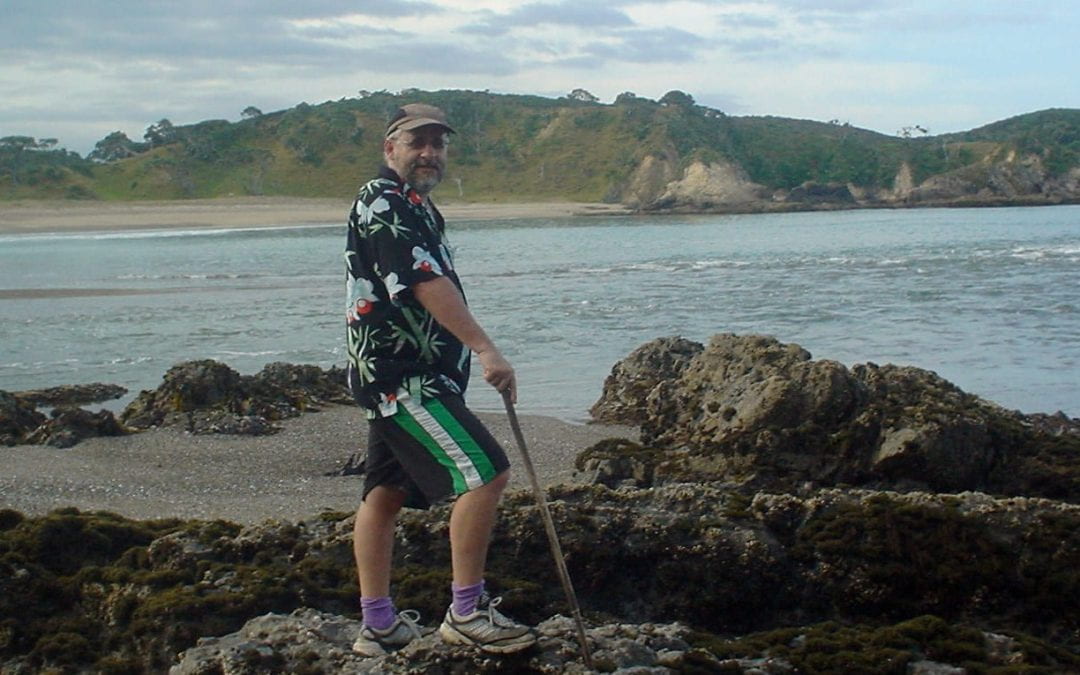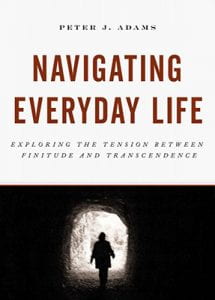The concept of “finitude” is used by a number of thinkers as a catch-all concept that refers to myriad of ways we encounter what bounds and constrains us as we go about our daily lives.
The nature of these boundaries is signaled in momentary flashes that pass us at varying speeds and at varying intensities. Sometimes we barely notice these moments: a fleeting, unnerving shiver down the spine, a nonspecific sense of unease or a momentary worry about the future.
In mundane everyday situations, finitude tends to present itself as a vague awareness as we knock up against the bounded nature of our bodies, our minds and our personal attributes.
At other times finitude is encountered in earth-shattering realizations which can shift our whole outlook on life, as occurs during near death experiences or major traffic accidents.
It is also possible to sit down and think about the various aspects of finitude. At this very moment my presence here is constrained by time. It’s nine o’clock on a cold wet Sunday morning. This is today. I occupy no other day; yesterday has become inaccessible and tomorrow has yet to come.
I’m also constrained by the place I occupy. I’m here and not there; at this moment I can’t be anywhere else. In a few moments I could be over there, but then I’d be no longer here. I’m always here. And I can’t walk through that wall over there, I have to go through the door. I’m constantly constrained by solid boundaries.
Moreover, I’m constrained by my body; it constantly holds me in place. My skin is this fleshy container that wraps around the blood, bone, organs and fluids that keep me alive. At no time am I free from my body, and through it I derive all my senses, all my thoughts and all my emotions; these constantly collide into patterns in my consciousness.
However, I’m not only constrained by my physical situation, I’m also constrained by who I am as a person. I am constantly jostled by fears, hopes and preferences, and these lead me to think and act in particular ways—particular ways and not in other ways.
Whereas one person is prone to fret and worry about small things, others seldom worry and have no trouble taking risks. I probably sit a bit in the middle.
And while the limits of my personality are never totally fixed, they are fixed to some extent. When I look back over the span of my lifetime, at my friends and myself, the combination of genetics, upbringing and life-experiences seems to coalesce into a potent mix which seems to hold each of us together as individuals.
Added to this, I am continually constrained by the way I see things; by the implicit biases and beliefs handed down from my parents, my friends and the media around me. I am fated at each moment to look out at things from a particular angle, from a particular vantage point, full of all the influences and prejudices that belong to the sort of person I am.
Now, while we lack enough space here to explore the many ways in which finitude expresses and re-expresses itself as a dynamic force in our lives, two aspects are worth noting.
First, we can maintain contact with finitude through the various ways finitude is signaled in our lives. We become aware of our finite condition by the way it is marked in our lives: whether they mark the passing of time, as with birthdays and grey hair, or whether they mark location in place, as with boarders and walls, or whether they mark confinement in our bodies, as becomes obvious in risky sports.
The second point concerns finitude’s relationship to death, or, more particularly, to one’s own death. Standing behind many of the boundaries that constrain us stands death. Take time, for instance. Time can be interpreted as how long I feel I have to live; after all, that’s the only time that really matters. And my position in space is framed by solid barriers, walls and buildings; I would be severely injured if I tried to run through them.
As for the frailty and vulnerability of my body, each bodily deterioration—when I go bald, develop wrinkles, lose fertility, become less strong and flexible—each of these have special meaning because of their relationship to my approaching death.
So the fact of my own death can be seen as the powerhouse of finitude, and finitude in its many forms is what structures my existence, then whenever I embrace my existence, I’m also embracing finitude and, accordingly, I am indirectly embracing my own death. It’s a linkage line: me-existence-finitude-death and death-finitude-existence-me, all wired up and vitalizing each other.
Finitude and the part it plays in major life challenges and transitions is explored more fully in the book: Navigating Everyday Life: Exploring the Tension between Finitude and Transcendence.
Text and photo by: Peter J. Adams


Recent Comments